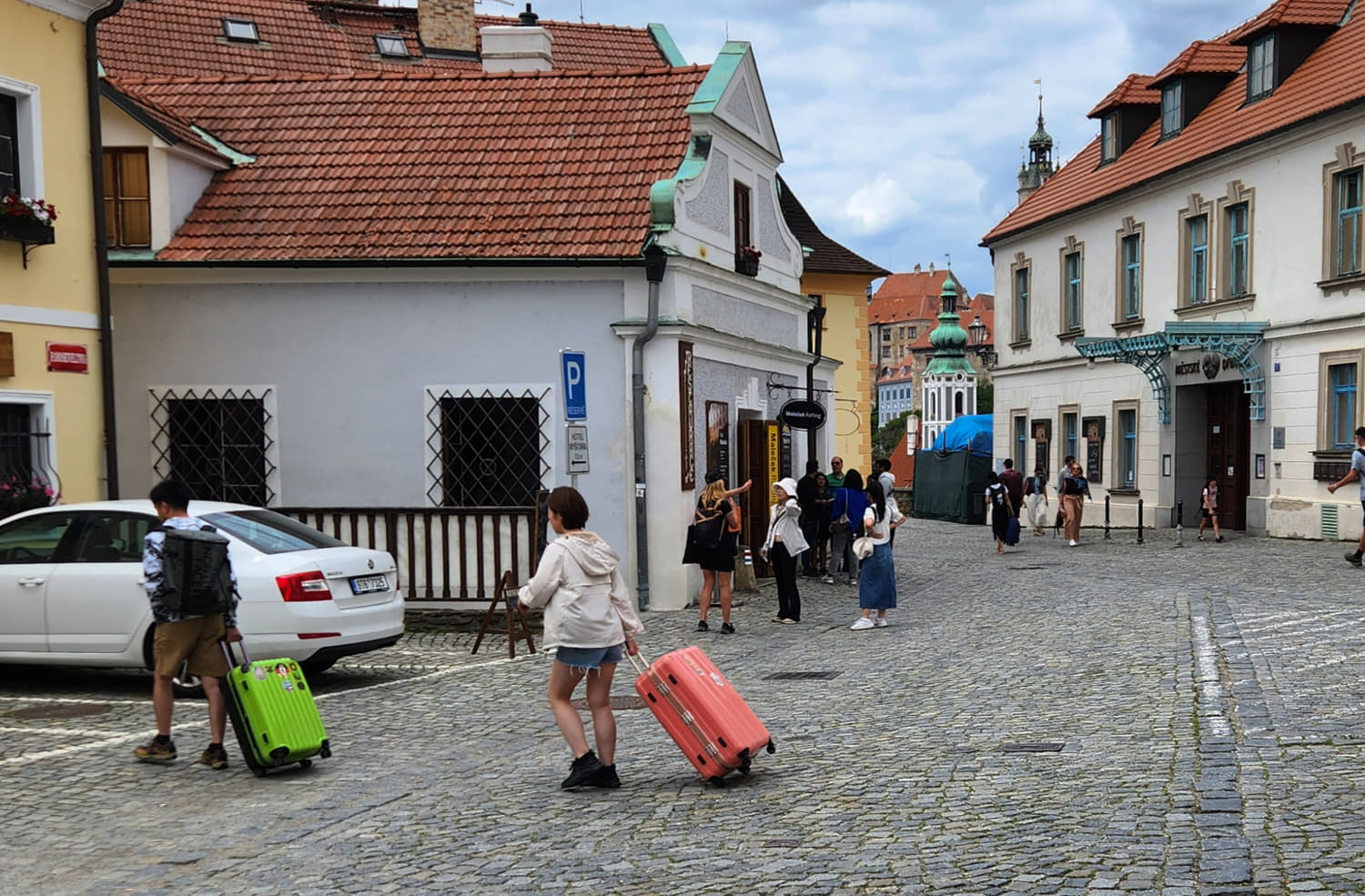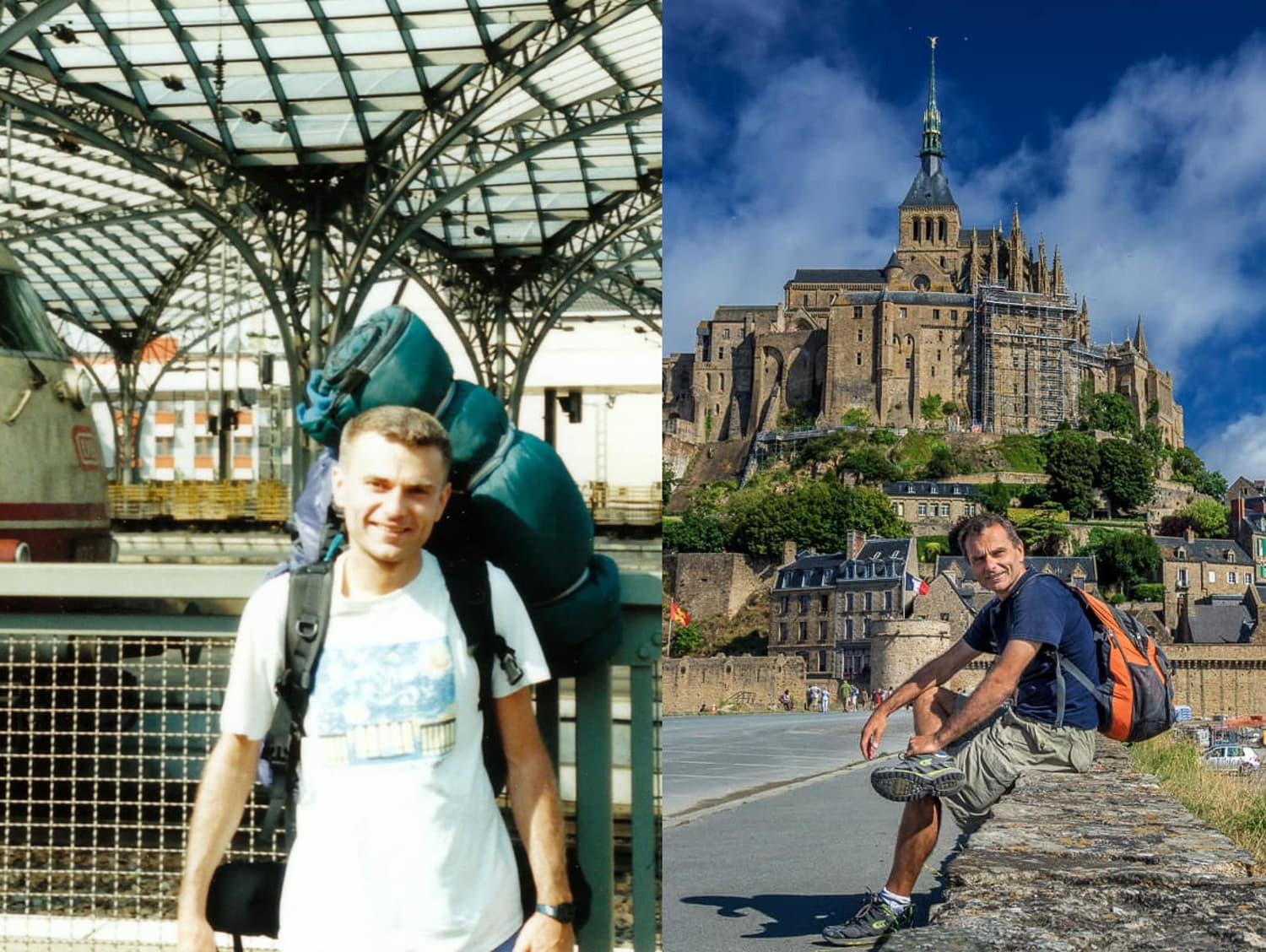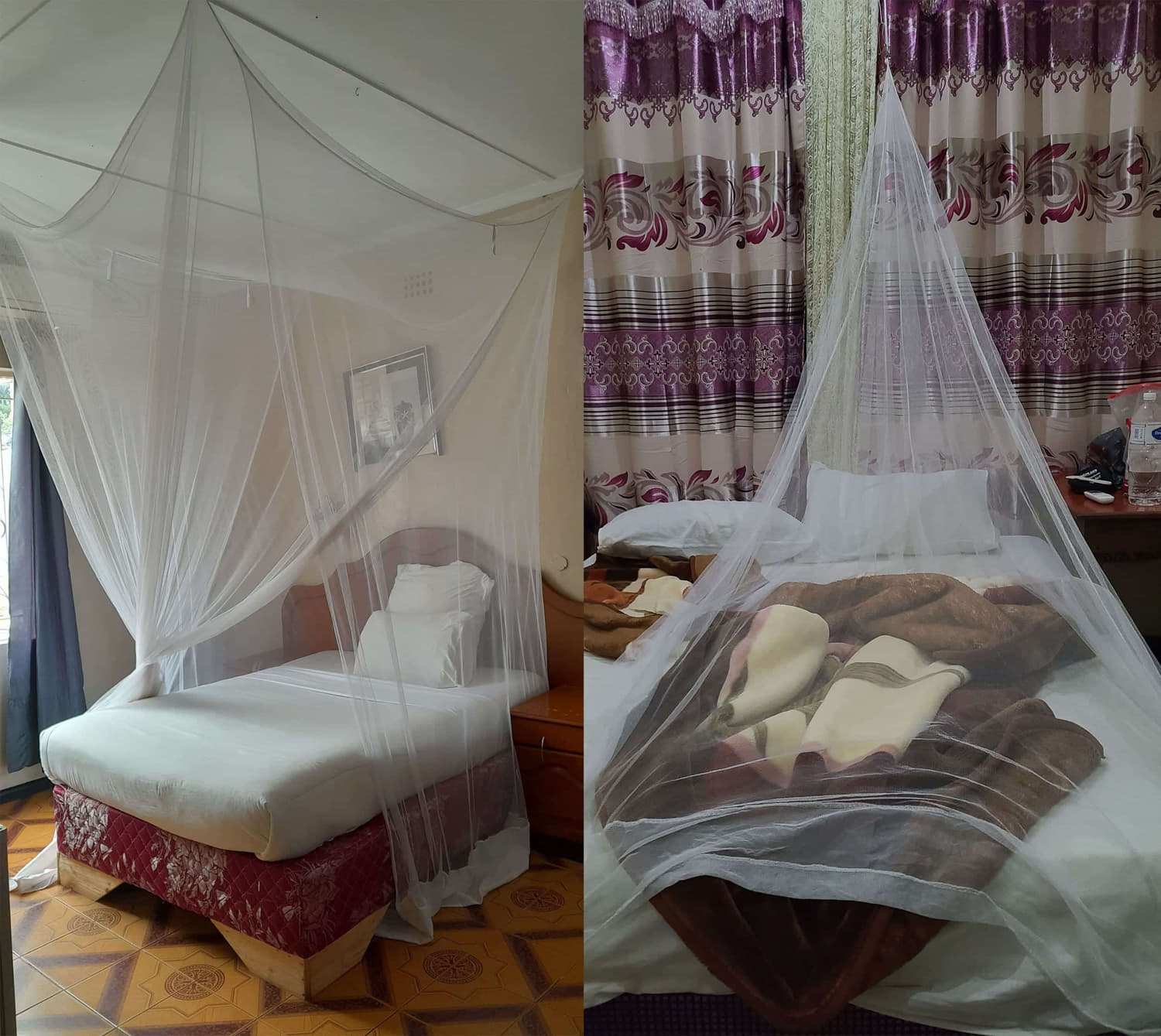
The idea of lugging gian suitcase on rollers may look cute until you have to do it on a cobblestone street

Before and after the enlightenment. I can travel indefinitely with just a daypack
Over the years, I've tried many things to make my travel safer and more comfortable. Below are guidelines that work for me. For riding trips, I pack additional motorcycle items.
General Preparation
- Airline ticket pricing schemes keep on changing and the tactics for getting the best deals a few years ago may not give the most optimal tickets now. I generally use Skyscanner to get an idea of what's out there, what dates are cheapest and then use one of the offered agencies to buy the ticket. Most recent trend is "self-transfer" tickets, through which airlines avoid responsibility for the missed connections (if you lose connecting flight due to a delay, it's not their responsibility any more). I've met travelers who lost their intercontinental flights and had to buy a new ticket on the spot because of this.
- Check visa requirements for countries I plan to visit and I have to transit through (some countries do not have visa-free transits). Also, check for entry requirements, many countries require a proof of onward travel. I've heard horror stories of people being denied boarding or had to buy a ticket out of the country on the spot.
- Pre-load off-line maps for the countries I plan on visiting. Maps.me served me well for over a decade, but in recent years it has gone down the drain and I switched to Organic Maps.
- Search internet for places of interest, roads to ride or hotels, exchange offices, etc., and mark them on the map app.
- Read other travelers' experiences with money exchange, border crossings, police encounters, document requirements, etc.
- Small backpack is the key to happy travel - no bigger than a "personal item" that airlines allow on flights for free (clothes and other necessities are available and usually cheaper in 3rd world countries).
- Minimalist packing:
- Ultralight day-pack (without frame, padding or waist-belt);
- Money belt (passport, bike papers, drivers license, spare credit cards and bulk of cash);
- Mosquito net with light bungee cords for hanging (if traveling in tropical areas);
- Flip-flops;
- Light wind-proof fleece;
- Light metal utensils (plastic utensils are useless - knifes are not sharp, spoons cannot carve fruits and food slips off plastic forks);
- Detergent for sink laundry;
- 2 pairs of socks, underwear and t-shirts, washed every night;
- electronics, chargers, outlet adapters;
- Foto/video equipment;
- Health:
- Antidiarrheal medicine - activated coal and Tetracycline;
- Antihistamines;
- Sunblock - easy to get sun-burnt behind the helmet visor;
- Antibacterial ointment for minor cuts and scratches;
- Earplugs for riding and sleeping in a noisy hotels;
- Documents - keep all originals in the money belt and use
copies whenever possible, keep copies on the phone and in the cloud:
- Passport;
- Driver's license and International Driver's License;
- Certifications one may need (diving, paragliding, etc);
- Extra passport-size photos;
- Extra credit/ATM cards;
- Small SSD drive for backups;
On the road
- Start the day early, early mornings are great for photographing sights without crowds;
- Carry a small bag of detergent and do sink laundry every night. Fan, AC or outside AC compressor, if accessible, will dry clothes quickly;
- Scan for hotel options, and/or make booking online the night before or before departure from the hotel. Sometimes, when I am not sure about the route or weather, I make a booking at lunch time.
- Check exchange rate and best places to get local currency before arrival at the border;

Many hotels in tropical countries have mosquito nets in rooms, but I still prefer to carry mine for the rooms without one